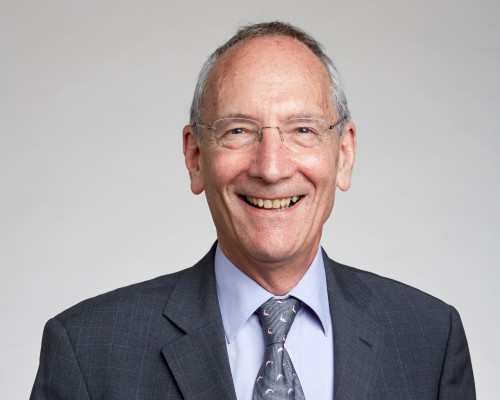The Jacobæus Prize was established in 1939 to commemorate the Swedish professor Hans Christian Jacobæus, and is awarded annually by the Novo Nordisk Foundation to an internationally-recognised scientist for extraordinary achievements within medical research.
Professor Lightman, a world-renowned neuroendocrinology expert, studies how the regulation of hormones released in our bodies in response to stress, affect the function of the brain and metabolic system. His latest research has focused on cortisol — a key hormone critical for the maintenance of life as it regulates a wide range of physiological functions from metabolism and immune responses through to blood pressure and blood sugar levels. It plays an important role in memory formation and other cognitive processes, and helps the body respond to stress. Low levels of cortisol are associated with debilitating fatigue, muscle weakness, dangerously low blood pressure and depression. While the pharmaceutical industry has invested heavily in providing new and more potent drugs Professor Lightman’s research has shown that rather than needing any new drugs, it is the timing of cortisol delivery- in line with the body's own rhythmic pattern of cortisol secretion - that is important for normal cognition and behaviour. This discovery has led to new ways of treating many people with hormonal imbalances.
His advances in this area have had major implications for the use of chronobiology (timing biology) to improve therapies by taking account of the importance of the pattern of drug presentation to the tissues of the body. This is important not only for improving cortisol replacement therapy but also has major implications understanding the role of glucocorticoid dynamics in stress and psychiatric disease. Professor Lightman also pioneered the development of methods to capture these rhythms in humans by ambulatory sampling of tissue fluid, techniques that are not only suitable for use in the clinic but can also be performed at home during normal daily activities.
His invention of a small, portable biosampling device that can measure the concentrations of hormones around the clock in people going about their normal everyday activities.
The blood concentration of most hormones rises or falls across the day and night, and using a single blood test to measure whether the concentrations at a specific time are within the normal range or may indicate disease can therefore be very inaccurate.
Using the device invented by Stafford Lightman, researchers can measure the concentrations of hormones 24/7 in the person’s home including undisturbed sampling during sleep. The device provides a whole new understanding of the hormonal characteristics of various diseases.
“This is a completely new tool that can be used to diagnose people with Cushing’s disease and improve the quality of hormone replacement therapy in many hormonal diseases,” explains Professor Lightman.
Anna Krook, Chair of the Foundation’s Committee on Endocrinology and Metabolism and Professor, Department of Physiology and Pharmacology, Karolinska Institutet, Stockholm, Sweden said: “Stafford Lightman’s research has contributed substantially to understanding cortisol and especially the importance of its pulsatility and circadian rhythm. We would like to honour this important research and its significance for people with several diseases by awarding him the Jacobæus Prize."
Professor Lightman, Professor of Medicine and the founding Director of the University of Bristol’s Henry Wellcome Laboratories for Integrative Neuroscience and Endocrinology, said: “This was a complete surprise, and I feel incredibly honoured and delighted to have received this award. It is, of course the result of the work of many people- basic scientists, clinicians, mathematicians and electronic engineers. I shall be delighted to receive the prize for all of them.”
The 2021 Jacobæus Prize will be awarded to Professor Lightman, who will give a lecture at the ceremony at Opus XV1 in Bergen on 21 April 2022.
